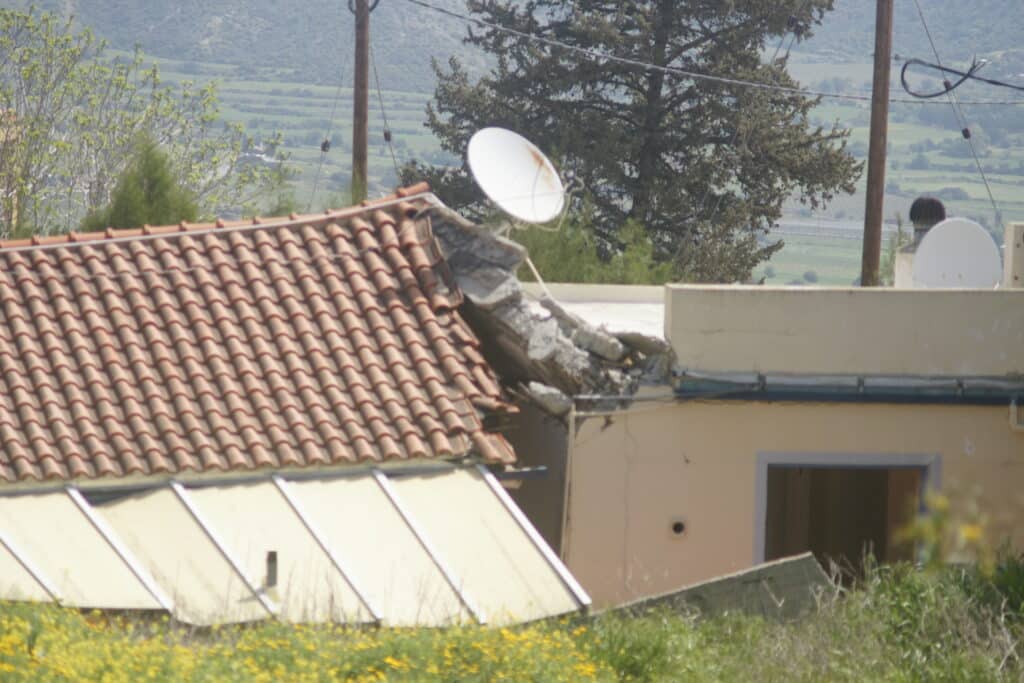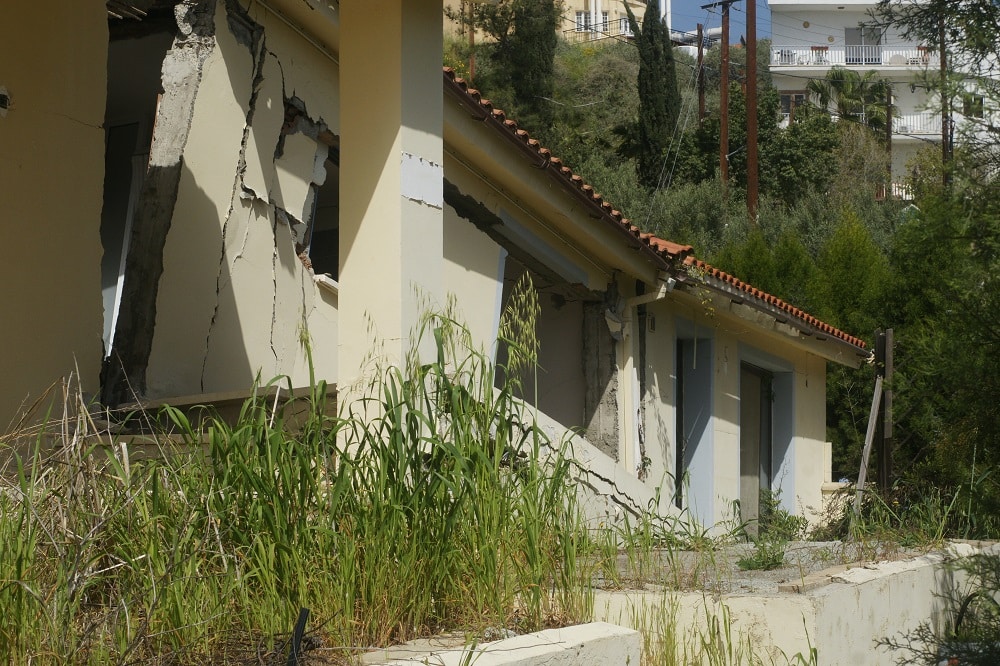Stabilisation works on houses delayed as shortcomings of government report revealed
By Bejay Browne
Twelve years on, there is still no respite for Pissouri homeowners, as further work to stabilise the landslide which literally tore properties apart has yet to get underway and heavy rains this winter could cause further catastrophic damage, according to the Pissouri Housing Initiative Group (PHIG).
Concerns are also being raised over assumptions made in an initial study of the area on which much of the stabilisation plan has been pinned, the group’s lawyer Georgia Elina-Zoi, told the Cyprus Mail this week.
“It seems that the public works department will hire an international independent advisor, to check the study submitted, since there seem to be valid concerns regarding the data they based their estimates and their designs on,” she said.
The government earmarked millions to correct the landslide that has affected up to 250 homes in the area, causing walls to crack, streets and driveways to buckle and water and drainage pipes to smash.
The first phase of the project included the creation of an arched pile wall to stabilise the more elevated area, but phase two is yet to get underway. And there continues to be movement in the area, said Elina-Zoi.
“Once again we are far away from starting the stabilisation work. The conditions in the area are dramatic. It’s a nightmare for the residents and a constant hazard,” she said. “At this point, we can’t even push the public works department to move faster – I honestly believe that the relevant officials there work as fast as possible – but so many years have been lost by the Limassol district office and the interior ministry,” Elina-Zoi said.
Movement in the area is changeable and the study needs to be updated, as it appears that some of the movement was not included in the original study, a member of the public works department confirmed to the Cyprus Mail, speaking on condition of anonymity.
There is also land movement further towards the centre of the community.
“I don’t know if the area or the people, will survive another winter. It all depends on the rain, and no one can predict what will happen next year,” Elina-Zoi said.
Peter Field, a former army colonel, and wife Kayt are both in their 80s and will celebrate their 60th wedding anniversary later this year. They were forced to leave their dream home in Pissouri which had cost them their life savings when it was destroyed by the landslide in 2016. The couple currently live in a bungalow near their old home and are hoping that the new interior minister will take an interest in the affected homeowners’ plight.
“We still need to know what’s happening, I wish that someone would have the decency to tell us,” Kayt said. “If nothing is done, we may have to close the motorway again as we did in our previous protest,” she said.
Husband Peter said as the situation has dragged on for so many years, the pair have become ‘numb’ to their predicament.
“I feel pretty numb and worn down and our future is still in the hands of the government. We are not in a financial position to replace our house and we are very disappointed with the officials, with the exception of the public works department who at least are trying to do something,” he said.
Last week, measurements from the benchmarks that were installed in the entire area of the landslide were taken, said Elina-Zoi. These show that the direction of the landslide has not changed.
“It’s still east, southeast and it’s more to the east than the south,” she confirmed.
According to the lawyer, the public works department has yet to launch the tender for the much anticipated work as evidence shows that the movement is towards the east and not the south, and if the project were to proceed as initially designed, it might not work, or be effective, and the money spent would be wasted.
“It seems that that the company estimated the movement of the landslide is towards the south instead of the east and designed the counterweight at the south, where the ravine is.”
In December 2022, the then Interior Minister Nicos Nouris asked parliament to approve a budget of €13 million for 2023 for work at Pissouri. The amount seems to correspond to the cost of part of the counterweight on the south of the landslide area, Elina-Zoi said.
As all of the evidence over the years shows that the movement is toward the east, Demetris Loukidis, from the Scientific and Technical Chamber (ETEK), requested an additional study to confirm the direction and depth of the landslide, she said.

Other delays concern technicalities surrounding the creation of a ‘legal structure’, which needs to be compatible with how the department operates, the staff member noted.
“Pissouri is a very complicated case and hopefully the right thing will be done for the people that live there,” they said.
All of these steps mean that it could be some considerable time before works start to stabilise the area, said Elina-Zoi.
However, Pissouri community leader, Lazaros Lazarou, said that the council is still under the impression that the tender process, which was finally due to commence on April 27, was only being delayed by a few weeks and would get underway imminently.
“We will ask for clarification in writing, as we believed that the tender would be launched soon. If not, we will have to do something,” he said.
Konstantinos Constanti, Etek chairman, noted in a recent letter to the residents’ group that it has been communicating with government agencies and raised the urgent need to investigate the problem in Pissouri, and that the active landslide requires immediate measures to be taken to protect human life.
It also confirmed that during licensing of the existing buildings, the area was included in a (residential) development zone, without any information about any geohazards existing in the area.
The letter added that geohazards, such as landslides, which concern specific regions of Cyprus, can’t be dealt with at the level of an individual study per development, but only through broader mapping by the state and highlighting the specific risks concerning the various regions.
“This is also intended … specifically to inform and in this regard protect the citizen, the engineers and the investors from possible geohazards that may threaten the built environment in an area,” the letter concluded.








Click here to change your cookie preferences